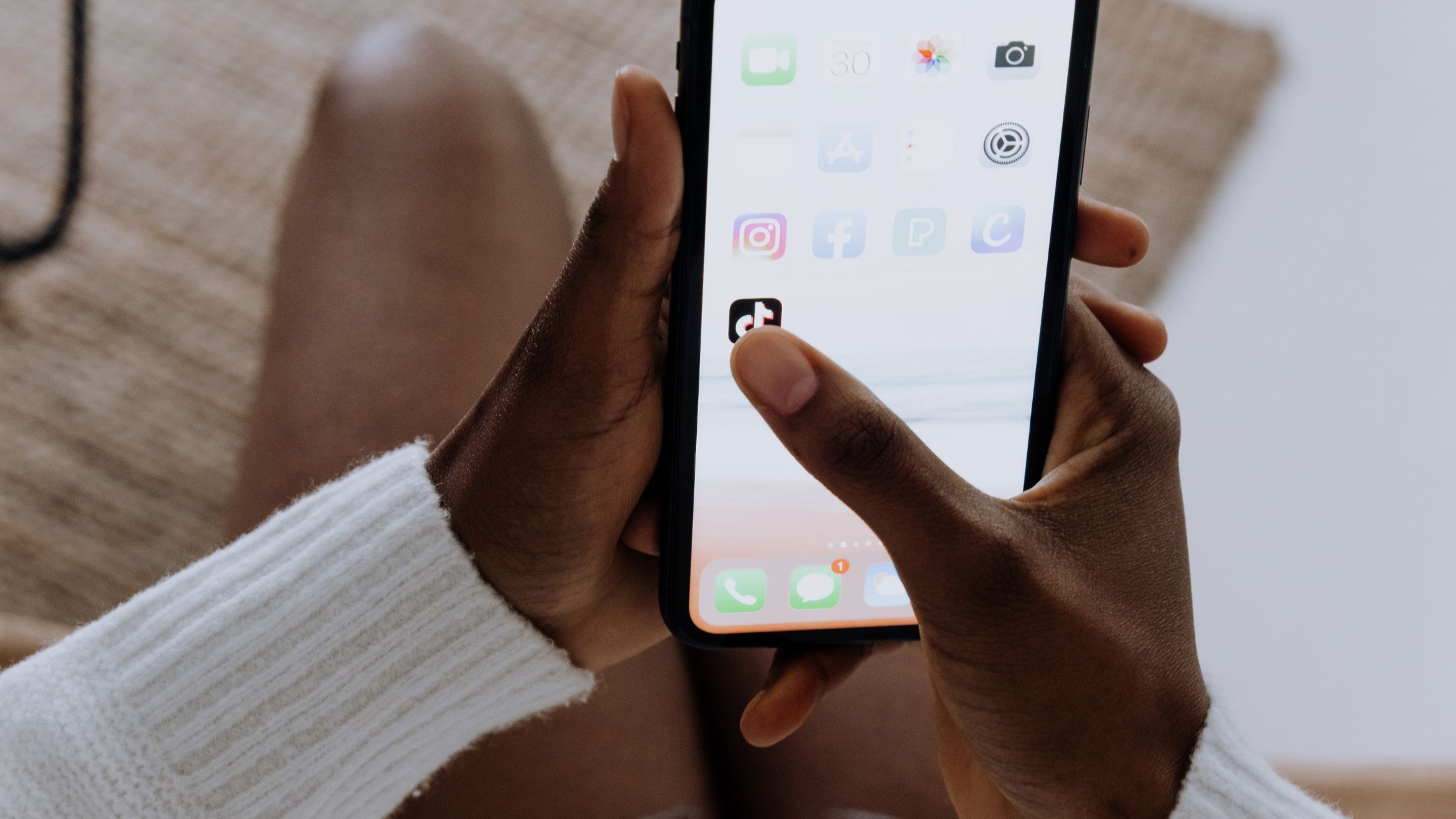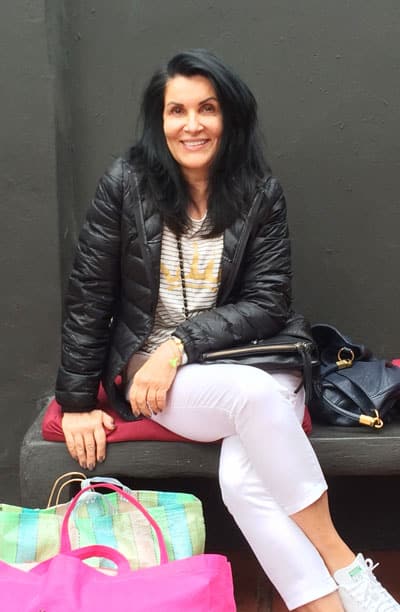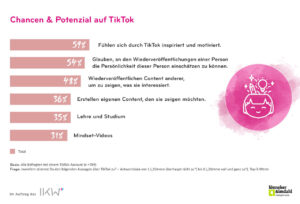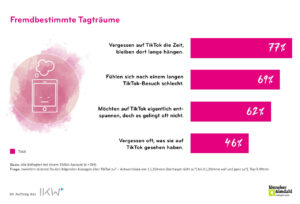TikTok – What Fascinates Young People About It

TikTok is a topic that cannot be ignored when dealing with young people today. No other social platform is currently captivating young people as much. With the study “TikTok unvarnished”, the IKW (Industrieverband Körperpflege- und Waschmittel) has investigated the role this platform plays in the lives of Gen Z. What fascinates young people about it? How does TikTok influence the process of self-discovery and which topics are particularly relevant?
TikTok is not just new and exciting. This has been shown by the depth-psychology-representative youth study. Rather, the platform performs important functions in the lives of young people. While Instagram mainly helped young people to stage a perfect dream world, TikTok is seen as more authentic and closer to reality. Young people trust TikTok more than any other social platform and use the recommendations and tips given here to further optimize themselves and their own mindset.
When switching off is not an option
The young people themselves speak of an addiction – more than 20 percent use TikTok between 3 and 10 hours a day. Yet they actually know exactly what they are doing when they spend hours on TikTok. Critically, they themselves note that they become “stupid and addicted” by constantly watching TikTok. But only very few manage to switch off consistently. Many tend to have a kind of “on-off relationship”. They repeatedly delete the app – only to return to the platform after a short time.
70 percent of the young people surveyed in the IKW-Studie* feel that TikTok is addictive due to the constant release of dopamine. 69% see their ability to concentrate at risk, and 61% admit that they cannot process anything they see on TikTok. The flood of images that young people are exposed to on the platform is huge. Short videos lasting just a few seconds are sometimes consumed for hours.
Between searching and addiction
But what prevents young people from simply switching off TikTok? The young people themselves say it’s the fear of missing out. Friends might already know about a new trend, but you don’t yet. In the worst case scenario, you could end up no longer belonging to a certain trendy community. And so young people continue to use TikTok.
In general, two mental states were identified in the study. In the first state, young people actively and consciously use TikTok to search for information – the platform’s search function is also referred to as “Google”. For example, they search for restaurants or products as well as explanations of terms. Many also only watch news via TikTok.
Compared to Instagram, TikTok is considered more credible overall, as videos from unknown users with just a few followers are also played. This appears more authentic. 43% use the platform as a search engine and just as many use it to find information. In this active state, it therefore serves as a reality check that gives young people stability and control.
Daydreams in the form of videos
The second condition is similar to a daydream and is actually intended for relaxation. However, users do not follow their own daydreams here. Instead, they watch other people’s dreams in the form of videos. At the end of the day, there are often so many that young people can barely remember what they have seen.
77% say that they forget the time on TikTok and get stuck there. However, it does not make young people happy. 69 percent feel rather bad after a long TikTok visit. They realize that they lose control of their time and devote themselves to topics that they cannot influence themselves.
Six central functions
Both constitutions perform important functions from the perspective of young people. The study revealed six central functions that are relevant for girls and boys. In the more active search constitution, young people want to develop potential for themselves and take advantage of opportunities as well as find shortcuts and structures for everyday life.
Examples include recommendations on topics such as fitness and mindset coaching or cooking and DIY tips. 55% estimate that they can find tips on how to do things better or faster in everyday life. Young adults also see the opportunity to become trendsetters themselves – even if they mostly just republish other people’s TikToks.
In the passive daydream state, on the other hand, they want to connect with a community or discover trends on topics such as travel, cars, soccer or cosmetics. 68 percent believe that trends are first on TikTok and later on other platforms. The so-called “For You Page” ensures that the stream of videos never stops.
TikTok and cosmetics
Many of the product recommendations for cosmetics are made via TikTok. In this area, the platform functions as a real fact check that provides orientation in the confusing product range. This is mainly due to the fact that many young people trust it and the recommendations for use given there. 44% say that they value the product recommendations they receive on TikTok. 33% also feel the same way about cosmetics and beauty care recommendations. Beauty routines in particular promise support in everyday life.
Step-by-step instructions that must be followed precisely provide a feeling of control and security shortly after getting up. 32 percent of young people say that beauty routines for skin cleansing and care are important to them. And those who cannot afford expensive products rely on recommendations for dupes. These are inexpensive cosmetic products that smell or look like expensive branded products.
Birgit Huber, Head of the Beauty Care competence partner at IKW: “Our first youth study ‘Insta ungeschminkt’ already showed how Instagram influences the way young people think and feel. The current study shows that the use of TikTok is characterized by even greater dependency. Even if the platform reinforces the perceived loss of control in many areas: in the area of cosmetics, recommendations on beauty routines give young people stability. They structure everyday life and convey a sense of security.”
About IKW: The Industrieverband Körperpflege- und Waschmittel e. V., based in Frankfurt am Main, was founded in 1968. It represents the interests of more than 440 companies from the beauty and household care sectors at national and European level. The industry has a turnover of over 21.1 billion euros and employs around 50,000 people. The member companies cover around 95 percent of the market. IKW is the point of contact for its member companies, ministries, authorities, consumers, institutions and associations as well as for the media when it comes to scientific, regulatory or economic issues.
*carried out by Lönneker & Imdahl rheingold salon, 2024, Charts (3): © IKW

CultureAndCream Author from Munich
To travel during my profession as a beauty journalist was never enough for my. Also my six month on a world trip didn’t do it. It always attracts me to other cities, foreign countries, on roadtrips and places I don’t know yet. But I am not only interested in “culture” and “cream”, I am also fascinated by people who have stories to tell . Such unique experiences I want to share with you.





